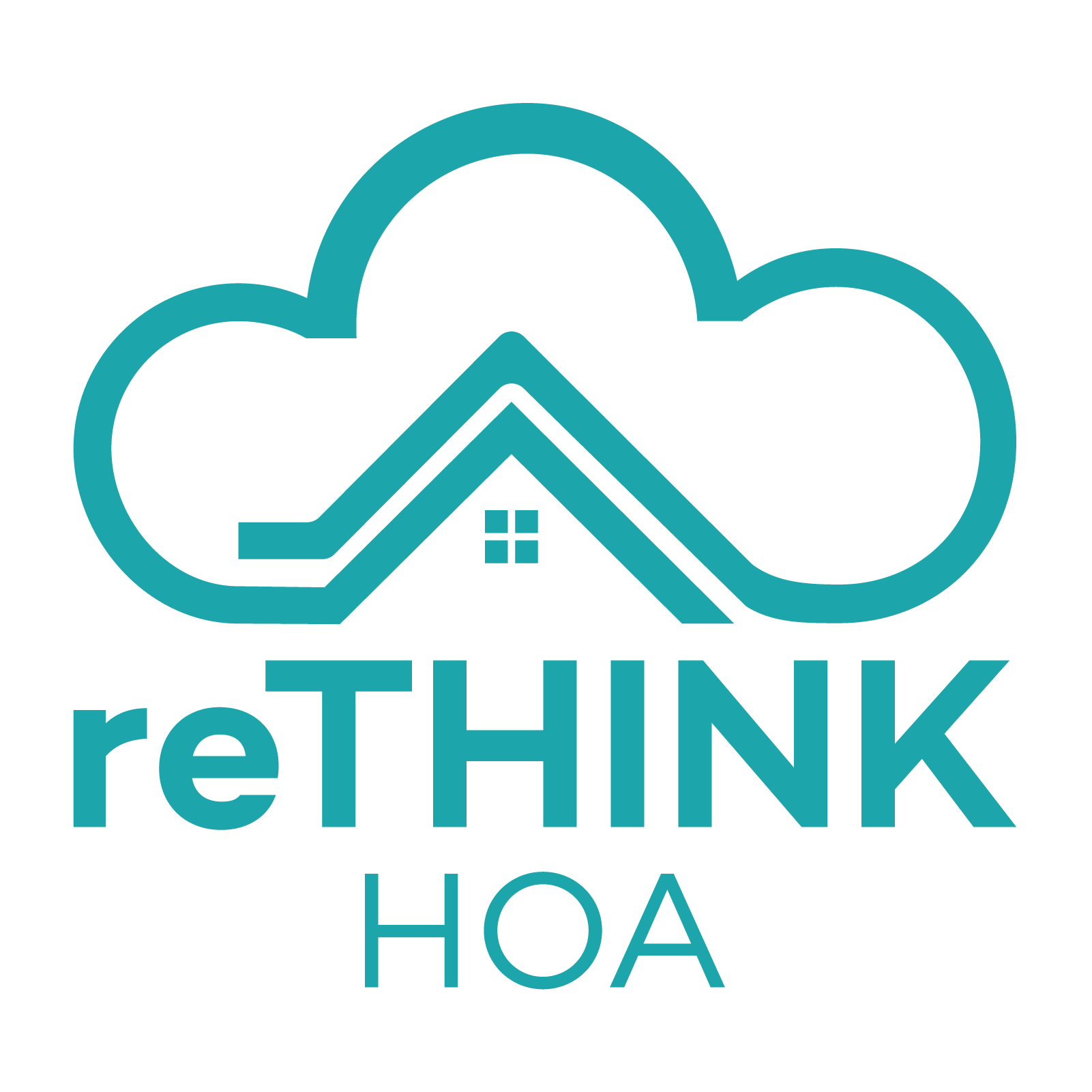In our previous article, The HOA President's Guide: Roles, Responsibilities & Best Practices, we highlighted the critical role of the HOA President in maintaining a thriving community. Yet another vital role is that of the Secretary, the community's primary record keeper and information coordinator.
The Secretary ensures that essential documents are meticulously maintained and facilitates effective communication between the board and homeowners. This role serves as a foundation to the association's proper functioning, providing transparent, accessible, and legally compliant records. From meeting minutes to key resolutions, the Secretary's work lays the groundwork for accountability and continuity, benefiting current and future community members.
This guide is a resource for current and aspiring HOA Secretaries. It is designed to outline the key roles, responsibilities, and best practices associated with this vital position. Whether you are newly elected or an experienced Secretary looking to enhance your effectiveness, this guide will provide valuable insights and actionable strategies.

- The Secretary serves as the chief record keeper of the HOA, responsible for managing all essential documents, including meeting minutes, correspondence, and governing documents. The role involves ensuring legal compliance, supporting board communications, and coordinating meetings.
- The Secretary is crucial in fostering transparency and trust within the community by maintaining accurate and accessible records. Timely responses to information requests also help in this regard.
- Various organizational tools and software solutions can streamline secretarial duties, making the role more effective and efficient.
The Role of an HOA Secretary
The role of the HOA Secretary is primarily administrative. An efficient and organized Secretary is critical to a well-functioning community with strong, effective governance. The heartbeat of any homeowners association is its board meetings, where decisions are made, policies are shaped, and community matters are discussed. As the Secretary, your role is central to these gatherings, ensuring that they are planned, documented, and stored in an efficient and accessible manner. The success of a meeting hinges on a well-prepared agenda.
Taking accurate and concise minutes is a crucial responsibility, requiring attention to detail. It's about capturing the essence of the discussions, decisions, and action items without omitting vital information. Utilizing technology designed for efficiency can streamline this process, allowing you to focus on the meeting itself without becoming bogged down in manual note-taking.
Post-meeting, the secure storage and easy retrieval of meeting records become paramount. Leveraging secure cloud-based storage solutions guarantees accessibility by homeowners. Organizing and maintaining these records digitally ensures transparency, compliance, and a lasting record of your association's evolution and governance.
The role of the Secretary in board meetings is multifaceted and requires a blend of organization, efficiency, and technological know-how. By leveraging the right tools and features, the HOA Secretary can elevate their management of board meetings, transforming them from mere administrative tasks to strategic functions that strengthen community governance.
Overview of Secretary's Responsibilities
The HOA Secretary's main responsibilities are organized into four key areas:
- Documentation and Record Keeping: Maintaining accurate and up-to-date records of all meetings, resolutions, amendments, and other vital documents, including safeguarding confidentiality where necessary and ensuring accessibility when required.
- Meeting Coordination: Assisting in the planning and notification of board and community meetings, including agendas, location, time, and any required materials.
- Communication Facilitation: Acting as a liaison between the board, community members, and external entities, ensuring that information is conveyed clearly and promptly.
- Compliance Management: Understanding and helping the board adhere to local, state, and federal laws, as well as the community's governing documents.
- Collaboration with Other Board Members: Working closely with other board members to streamline operations, such as coordinating with the Treasurer on financial documentation or collaborating with the President to set the agenda for the next regular meeting.
By delving into these responsibilities, it becomes clear that the role of an HOA Secretary is not just administrative but plays a vital role in governance, communication, and legal compliance. Their work serves as the backbone of the community, enabling the board to function effectively and the community to thrive.
The Responsibilities of an HOA Secretary
The Secretary's responsibilities encompass all HOA documentation, communication with board members and residents, and legal paperwork. These responsibilities include:
Documentation and Record-Keeping for Historical Preservation
Meeting Coordination
Communication Facilitation
Compliance Management
Collaboration with Others
Roles and Responsibilities of an HOA Secretary in a Self-Managed Community
In a self-managed HOA, the role of the Secretary takes on distinct characteristics that distinguish it from one that is managed by an HOA management company. Here are the top ways the responsibilities differ:
- Informal Communication Channels: In a smaller, self-managed HOA, communication might be more casual and facilitated through group text messages, social media, or informal meetings. Casual, more frequent communication channels can foster a closer-knit community and make the Secretary's role less formal, focusing more on maintaining open lines of communication rather than managing complex communication structures.
- Community Engagement: With the closer connection between board members and residents, the Secretary's role in fostering community relationships is even more pronounced. Community engagement might include organizing casual community gatherings or directly engaging with residents to ensure their voices are heard.
- Increased Decision-Making Authority: As part of a self-managed structure, the Secretary often has more direct influence over community matters, reflecting strong leadership and a comprehensive understanding of the community's values and goals.
- Faster, Less Bureaucratic Decision-Making: In a self-managed HOA, the Secretary can often act more swiftly and with less red tape due to the reduced layers of governance and bureaucracy. Decisions can be made quickly in direct consultation with other board members, speeding up processes like conflict resolution or implementing community improvements. This efficiency enhances the community's ability to adapt and evolve.
Challenges of the Secretary's Role
Several common challenges and pitfalls might hinder the optimal performance of the Secretary's duties. These challenges include:
- Time Management and Workload: Managing the responsibilities of a Secretary can be time-consuming and requires meticulous attention to detail. Balancing the workload without feeling overwhelmed is a common challenge.
- Compliance with Legal Requirements: Ensuring all documents, correspondences, and meetings comply with legal requirements is complex. Lack of compliance can lead to serious legal repercussions.
- Technological Constraints: Leveraging technology to streamline functions is vital, but technological constraints or resistance to change can hinder efficiency.
- Communication Barriers: Ensuring clear and effective communication with board members and homeowners is crucial. Miscommunication or lack of transparency can lead to mistrust and dissatisfaction within the community.
Challenges of Using a Property Management Company as an HOA Secretary
Working with a property management company to outsource the HOA Secretary's duties can provide some benefits, but it also comes with many challenges. While it may free up time and resources for the board, it can also lead to unforeseen issues that need careful consideration and planning:
- Loss of Control: Documents and essential information may no longer be directly in the control of the HOA, leading to potential accessibility and management issues.
- Exorbitant Charges for Documents: Property management companies may charge fees for accessing or obtaining necessary documents, adding to the expenses of the HOA.
- Potential Conflicts of Interest: A property management company might have other clients, vendors, or interests that could conflict with the best interests of the HOA, leading to biased decisions or actions.
- Differing or Conflicting Priorities: A property management company might have different goals or business objectives that don't align with the community's best interests
- Delayed Responses: Slower communication with a third-party entity may lead to delays in decision-making or problem resolution.
- Less Community Engagement: The management company might have a different vested interest in fostering community relationships, leading to less engagement with residents.
- Inconsistency in Policies and Practices: A third-party company may not be as intimately familiar with the specific bylaws and culture of the community, leading to inconsistencies in policy enforcement and practices.
- Lack of Transparency: Ambiguity in financial reporting and procedures can hinder trust and accountability.
- Lack of Technology: If the management company does not use or provide access to modern HOA management software, it will lead to inefficiencies and frustrations.
Engaging a property management company to handle the Secretary's responsibilities can present challenges that require careful consideration and management. Understanding and developing strategies to address these potential issues can ensure the relationship is productive and aligns with the community's objectives.
Best Practices for the HOA Secretary
Adherence to certain best practices is essential to succeed in this demanding role. These practices serve as a roadmap for fulfilling the duties of an HOA Secretary effectively and with integrity, building a community that thrives on trust, efficiency, and inclusiveness.
Ethical Conduct
• Honesty and Integrity: Being transparent and truthful in all dealings, whether with fellow board members, residents, or vendors. Trust is foundational to a cohesive community and begins with the commitment to honest communication and action.
• Conflict of Interest Management: Identifying and managing potential conflicts of interest, ensuring that personal or professional biases do not interfere with the community's best interests.
Utilizing Technology for Organizational Efficiency
• Utilizing Tools and Software for Organization: Leveraging technology, such as HOA management software, can streamline tasks and enhance efficiency. These tools assist in scheduling, record-keeping, and overall organization.
• Creating Efficient Workflows: Designing workflows that align with the specific needs and expectations of the community allows for a smoother operation, reducing redundancies and enhancing productivity.
Community Engagement
• Building Relationships with Residents: Regularly interacting with community members, understanding their concerns, and working towards solutions creates a supportive and connected community.
• Facilitating Open Dialogue: Encouraging open and honest communication between residents and the board promotes transparency and builds trust. Whether through community meetings or online platforms, dialogue should be encouraged.
• Encouraging Community Participation: Actively seeking the involvement of residents in community activities and decision-making increases a sense of ownership and leads to more inclusive and effective outcomes.
How reTHINK HOA Software Supports the Role of the Secretary
The responsibilities of an HOA Secretary are vast and integral to the community's success. Recognizing these unique demands, reTHINK HOA has crafted tailored software solutions designed specifically to enhance the role of the Secretary. All features have been developed with built-in compliance in mind. From maximizing efficiency and collaboration to ensuring strict compliance, here's how reTHINK HOA transforms the Secretary's responsibilities into a seamless experience.
Homeowner Management
Event Planning and Automated Notifications
Document Sharing and Management
The role of an HOA Secretary is complex, requiring organization and community interaction. reTHINK HOA software empowers the Secretary with features and tools designed to simplify these responsibilities, enabling a more effective, transparent, and engaged approach to community management. By leveraging reTHINK HOA, HOA Secretaries can confidently manage the administrative tasks for their communities, backed by a platform that aligns with their goals and the best interests of their communities.
Final Thoughts
The Secretary's role within a homeowners association is multifaceted, demanding, and vital for the community's well-being. The responsibilities are extensive, from organizing and managing board meetings to maintaining documentation, ensuring legal compliance, fostering communication, and collaborating with other board members. With the right tools, strategies, and mindset, the Secretary's role transforms from an administrative function into a strategic powerhouse that nurtures community growth, cohesion, and success.
The insights and guidance shared in this guide equip HOA Secretaries with the resources, perspectives, and actionable steps to excel in their role.
By embracing the complexities and opportunities of being the Secretary, you can contribute significantly to a transparent, efficient, and caring community, exemplifying the best homeowners associations can be.
Bonus Content for Members: Secretary's Checklist
Take advantage of our exclusive bonus content! We're providing a Secretary's Checklist that brings all these responsibilities, best practices, and efficiency tips into one easy-to-follow guide. This indispensable resource is perfect for new and seasoned HOA Secretaries looking to elevate their community management skills. Whether you're drafting your first agenda or setting up a document-sharing system, this checklist is your roadmap to success.
Sign-in or Subscribe to download your free Secretary's Checklist and take your HOA governance to the next level!
This content is only available to subscribers
Subscribe now and have access to all our stories, enjoy exclusive content and stay up to date with constant updates.
Sign up nowAlready have an account? Sign in











